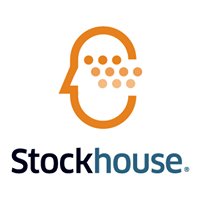Generating leads is crucial to boosting your sales – but if your landing pages aren’t effective, you’re going to struggle to turn visitors into customers.
Landing pages play a key role in elevating the effectiveness of your marketing efforts and differentiating, refining, and enhancing the user experience.
In this article, we’ll explore how to choose the right landing page builder for your business before highlighting the nine top landing page builders and what makes them stand out.
Let’s get into it.
Choosing The Right Landing Page Builder For Your Business
With so many options to choose from, how can you decide which landing page builder is right for you?
Here are a few things to consider when making your decision.
- Marketing objectives: Start by deciding what you want to achieve with your landing pages. Are you looking to collect email subscribers, drive sales, generate leads, or promote an event? Each platform caters to different use cases, so leading with your goals can help you refine your search.
- Ease of use: Different builders have different learning curves. If you’re a novice, you should probably opt for a tool that caters to beginners. If you have more technical experience, like coding knowledge, you might want to look to more advanced builders to get the most power.
- Integration needs: Do you want your landing pages to integrate with other software or tools you’re already using?
- Mobile optimization: It’s essential that your landing pages cater to mobile users, so make sure your builder considers that with features like responsive design.
- Budget constraints: Unfortunately, budget matters. Landing page builders come with various price tags depending on their capabilities and features. Make sure you’re working within the boundaries of what you can afford.
While this is, by no means, an exhaustive list of considerations, it’s a starting point to help you choose a landing page builder that makes sense for your business needs.
Now, let’s look at nine of the best landing page builders to choose from.
1. Carrd
Screenshot from Carrd.com, April 2024
- Best for: Simple projects, personal use, and small budgets.
Looking for a great landing page builder that won’t break the bank? Look no further than Carrd.
Carrd is a streamlined landing page builder that focuses on creating single-page websites quickly and easily. It’s designed for simplicity, making it ideal for anyone who wants to quickly create a webpage without needing to build a multi-page site.
Think portfolios, personal profiles, project presentations, and small business showcases.
Carrd’s user-friendly interface and selection of themes allow users to create sleek pages in the blink of an eye without even needing an account – you can just visit the website, pick a theme, and get started. However, you will need to sign up to save or publish your site.
It balances simplicity and functionality to help you craft that pages are clean, focused, and responsive across all devices. If you’re just testing the waters or working with slim budgets, this is the right tool for you.
Pros:
- Extremely affordable, with a free tier available.
- Intuitive and user-friendly interface.
- Responsive design.
- Fast and lightweight, making it ideal for quick and simple sites.
Cons:
- Limited to single-page websites.
- Restrictive layouts/themes, which limit creative freedom.
- Lacks advanced features and integrations found in more comprehensive builders.
Pricing:
- Carrd’s free basic plan allows you to launch three sites with Carrd branding to .carrd.co domains.
- Paid plans range from $9 to $49 per year, and offer additional features like no Carrd branding, custom domains, and Google Analytics support (depending on your membership tier).
2. ConvertKit
 Screenshot from ConvertKit.com, April 2024
Screenshot from ConvertKit.com, April 2024
- Best for: Content creators, bloggers, and marketers focused on growing their audience through email.
Billing itself as “the creator marketing platform,” ConvertKit’s landing page builder is targeted at creators, bloggers, and marketers who want to expand their email subscriber base.
If your goal is to create a landing page to help you build an email list, ConvertKit might be the right option for you.
ConvertKit’s landing page builder offers a range of high-quality, customizable templates and integrates with third-party tools to help you get the most out of your site.
It also integrates with the stock photo platform Unsplash to offer access to 100,000+ free images for your landing page.
While ConvertKit’s analytics and customization options might not be as extensive as those of some of its competitors, its ease of use and focused approach make it a standout for email-driven campaigns.
Pros:
- No cost for starting (up to 1,000 subscribers).
- Access to thousands of free images.
- Robust third-party integration capabilities.
Cons:
- Limited template customization and flexibility.
- A/B testing and analytics features are less advanced.
- Priced higher than some basic landing page builders.
Pricing:
- Free plan for up to 10,000 subscribers.
- The Creator plan starts at $25/month and includes benefits like automation features and app integrations. Pricing scales are based on subscriber count.
3. Unbounce
 Screenshot from Unbounce.com, April 2024
Screenshot from Unbounce.com, April 2024
Unbounce is a leading landing page builder renowned for its focus on conversion rate optimization (CRO). Its website promises to help you “build high-converting landing pages with ease.”
It offers a suite of advanced tools, such as A/B testing, dynamic text replacement, and the Smart Traffic system, which uses AI to optimize visitor flow to the highest-converting page variant based on user behavior and characteristics.
It also focuses on features that can help you boost your lead gen efforts, such as opt-in email popups and sticky banners.
With 100+ responsive templates, Unbound makes it easy to create landing pages that are both engaging and effective.
Compared to some other options on this list, Unbounce is a particularly robust platform with tons of customization and integrations – and the price point reflects that.
As a premium offering with a steeper learning curve, it might not be the best for beginners – but its AI-powered features and conversion-focused tools make it a formidable tool for achieving your goals.
Pros:
- Advanced A/B testing and AI-driven optimization.
- Large selection of responsive templates.
- Integrated features for enhancing lead capture.
Cons:
- Higher price point than some other builders, which might not work for those with limited budgets.
- Complex setup and steeper learning curve for new users.
- Some customization limitations.
Pricing
- The Build plan starts at $74/month and covers unlimited conversions, one root domain, and up to 20,000 monthly unique visitors.
- Other paid plans range from $112/month up to $649/month.
4. Leadpages
 Screenshot from Leadpages.com, April 2024
Screenshot from Leadpages.com, April 2024
- Best for: Small businesses and entrepreneurs looking to generate sales.
Need a landing page that will help you generate sales? Consider taking a look at Leadpages.
Its strength lies in its user-friendly, drag-and-drop editor and an extensive collection of templates that streamline the page-building process. Plus, according to the Leadpages website, it’s a platform that converts five times better than the industry average.
Leadages offers CRO tools, real-time analytics, and A/B testing capabilities, enabling users to enhance their page performance effectively.
Its various widgets allow you to add videos, images, forms, and even payment integrations directly onto your landing pages, making it a versatile tool for businesses that want to combine content with sales functionality.
On top of all this, Leadpages now includes an AI Engine for creating headlines and images and an AI writing assistant at some membership tiers, which can help you write better content.
Pros:
- Intuitive no-code editor and easy payment integration.
- Comprehensive A/B testing and real-time analytics.
- Extensive template library with over 250 options.
Cons:
- Higher cost compared to some alternatives.
- Limited ecommerce features and potential mobile responsiveness issues.
- Some users report mobile responsiveness issues.
Pricing:
- The standard plan starts at $37/month for one custom domain, unlimited traffic and leads, and 10,000 monthly AI Engine credits.
- More advanced features are available in higher-tier plans, which start at $74/month.
5. Landingi
 Screenshot from Landingi.com, April 2024
Screenshot from Landingi.com, April 2024
- Best for: Businesses seeking a versatile landing page solution with a wide range of features.
If you’re in the market for versatility, Landingi is worth investigating.
Landingi offers a flexible, comprehensive landing page builder with a robust set of features, including an advanced editor, popups, A/B testing, and a substantial library of 300+ templates.
Its unique Smart Sections feature allows you to reuse and easily update specific page elements across multiple designs, saving time and headaches.
Designed to serve businesses of all sizes, Landingi’s simple, drag-and-drop builder can help you create and optimize various types of landing pages – and if you have any HTML and CSS knowledge, it can be a pretty impressive editor.
Landingi is a particularly strong choice for small businesses looking to target different customer segments with unique landing pages. The integration capabilities with numerous apps, including payment gateways like Stripe, make it a great choice for companies looking to sell products.
While its rich feature set can be overwhelming for newcomers, and creating pages might take a bit longer compared to other platforms, the level of customization and control it offers makes Landingi one of the best landing page builders out there.
Pros:
- Extensive template library with 300+ customizable options.
- Powerful editing capabilities with Smart Sections for efficient design.
- Broad integration with various apps, including payment systems.
Cons:
- Steeper learning curve for beginners.
- Potentially longer time to create landing pages compared to simpler platforms.
Pricing:
- The Lite plan starts at $35/month and gives you 10 digital assets, unlimited conversions, 5,000 visits per month, and one custom domain.
- Landingi also offers Professional and Unlimited tiers with more advanced features and capabilities.
6. Instapage
 Screenshot from Instapage.com, April 2024
Screenshot from Instapage.com, April 2024
- Best for: Large businesses, marketing teams, or agencies that require collaboration and advanced optimization features.
If you’re seeking a more high-end landing page platform, Instapage might be the one for you. It offers advanced features tailored for professional marketing teams and agencies with a need to create optimized landing pages at scale.
In addition to a drag-and-drop builder and plenty of high-quality templates, Instapage offers a bevy of features, including advanced cloud-based team collaboration tools, heatmaps for user engagement analysis, robust A/B testing capabilities, AI-generated content creation, and more.
One of its standout features is Instablocks, which allows users to create custom page components that can be easily reused across different projects.
Instapage supports advanced marketing goals with features like AdMap to align ads with page content. Plus, its mobile-friendly design ensures a fast, seamless user experience.
While Instapage offers a premium experience with its comprehensive set of tools and features, its higher price point and complex functionalities may be a barrier for smaller businesses or those new to landing page optimization.
Pros:
- Extensive customization with a library of professional templates.
- Instablocks for efficient design and asset reuse.
- Effective team collaboration features.
Cons:
- Premium pricing will be a barrier for many businesses.
- Steep learning curve for utilizing advanced features.
- Limitations in reporting and visitor tracking for lower-tier plans.
Pricing:
- The Build plan starts at $199/month, with a 14-day free trial.
- Customers will need to upgrade to a customized Convert plan to access some of the more complex features, such as AdMap, heatmaps, and more.
7. Wix
 Screenshot from Wix.com, April 2024
Screenshot from Wix.com, April 2024
- Best for: Individuals and small businesses seeking creative control without advanced coding.
Now for something much more accessible: Wix is renowned for its user-friendly platform, which is ideal for creating attractive landing pages with minimal effort.
Like other options on this list, Wix offers an accessible drag-and-drop editor and a range of existing templates to help users craft aesthetically pleasing and functional landing pages.
Wix’s platform has a reputation for being particularly beginner-friendly, with a low learning curve and a free plan to help new users get started without any upfront investment.
For those focused on ecommerce, Wix provides specific features to build landing pages that showcase products and promotions, supported by over 50 payment solutions and tools like heatmaps to enhance user engagement and conversion rates.
While it offers a free starter plan, accessing more advanced functionalities and removing Wix ads requires upgrading to a paid subscription.
Wix’s balance of user-friendly design tools, ecommerce support, and cost-effective pricing makes it a favorable option for those new to web design or businesses needing straightforward, visually appealing landing pages.
Pros:
- User-friendly with an intuitive drag-and-drop interface.
- Free plan available, making it accessible for beginners.
- Ecommerce capabilities with extensive payment integration.
Cons:
- Advanced features and ad-free experience require a paid plan.
- Potential limitations in customization for complex requirements.
- Site speed may decrease with more intricate designs.
Pricing:
- A free plan is available, but it includes Wix branding and lacks more advanced features like payments.
- Paid plans start at $17/month, offering additional features.
8. Elementor
 Screenshot from Elementor.com, April 2024
Screenshot from Elementor.com, April 2024
- Best for: WordPress users looking for a powerful and intuitive landing page builder.
If you’re a WordPress user, you’ll want to know about Elementor.
It’s a WordPress page builder that has gained popularity for its flexibility, comprehensive customization capabilities, and user-friendly interface.
Elementor allows users to design dynamic and detailed landing pages within WordPress. This feature makes it the perfect choice for WordPress users who want to extend the functionality of their website with sleek landing pages that maintain a consistent look and feel with their existing content.
Its real-time editing features allow for immediate feedback on design changes without any coding.
It also offers dozens of designer-made templates to choose from. You can add custom forms and popups to your landing page, save page components for reuse, and seamlessly integrate with your customer relationship management (CRM) tools to create a powerful customer experience.
While Elementor offers a ton in terms of design flexibility and integration, it’s important to note that it’s exclusively for WordPress users and can be resource-intensive – so it might impact site performance, especially on more complex websites.
Pros:
- Advanced customization and design flexibility.
- Real-time editing and instant feedback.
- Seamless WordPress integration.
Cons:
- Exclusively for WordPress users.
- Potentially impacts site performance due to resource intensity.
Pricing:
- Free version with limited functionality.
- Paid versions start at $59/year, providing advanced features and support.
9. Taplink
 Screenshot from Taplink.at, April 2024
Screenshot from Taplink.at, April 2024
- Best for: Social media influencers and businesses looking to direct traffic from social platforms to other content or actions.
This one’s a little different than some of the other examples here, but it deserves highlighting.
Taplink is a specialized micro-landing page builder optimized for social media profiles. It’s perfect for businesses and influencers that want to drive traffic from social media to other content or actions. You just use Taplink to create landing pages and share them on your social profiles.
Taplink stands out for its simplicity and mobile optimization, which is crucial when targeting social media audiences.
The focus on quick, effective page creation allows users to engage with their audience without the complexities of traditional website development.
For those aiming to convert social media interest into tangible outcomes – such as lead generation, sales, or content promotion – Taplink is a winner.
While its feature set is more limited than some of the more comprehensive builders featured here, its affordability and user-friendly design make it a great tool for those looking to maximize their social engagement with minimal effort and investment.
Pros:
- Simple and quick setup.
- Mobile-optimized for social media engagement.
- Cost-effective for targeted campaigns.
Cons:
- Designed primarily for micro-landing pages, limiting the scope.
- Fewer features and customization options than extensive landing page builders.
Pricing:
- Taplink offers a free basic plan, with premium features available on paid plans starting from $3/month. The most expensive tier, the Business tier, is $6/month.
There’s A Landing Page Platform To Help You Convert Visitors
Choosing the right landing page builder for your business can significantly impact your marketing success – but the decision will depend on your specific goals and needs.
As we’ve explored, each tool has unique strengths and caters to different aspects of the landing page creation and optimization process.
Whether you’re looking for advanced design capabilities, a user-friendly interface, or specific functionalities like CRO, there’s a platform that can help you not just streamline your landing page design process, but start converting visitors into loyal customers.
More resources:
Featured Image: Griboedov/Shutterstock





